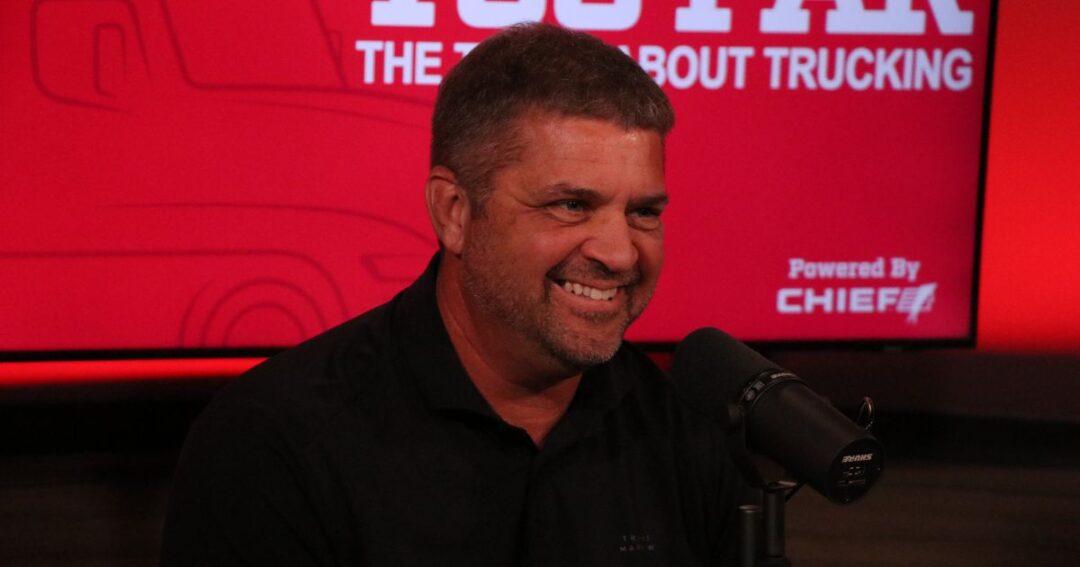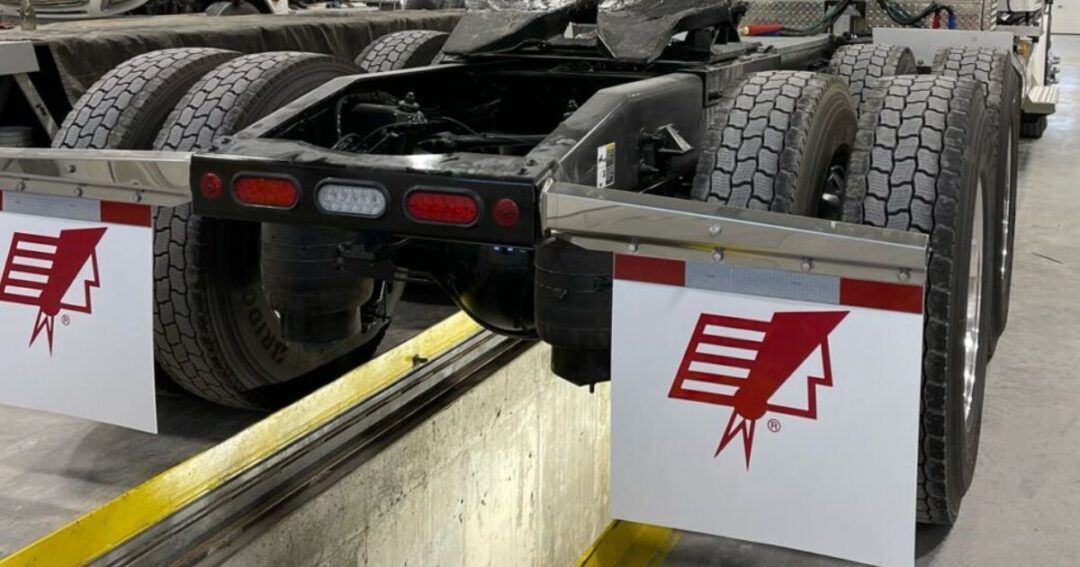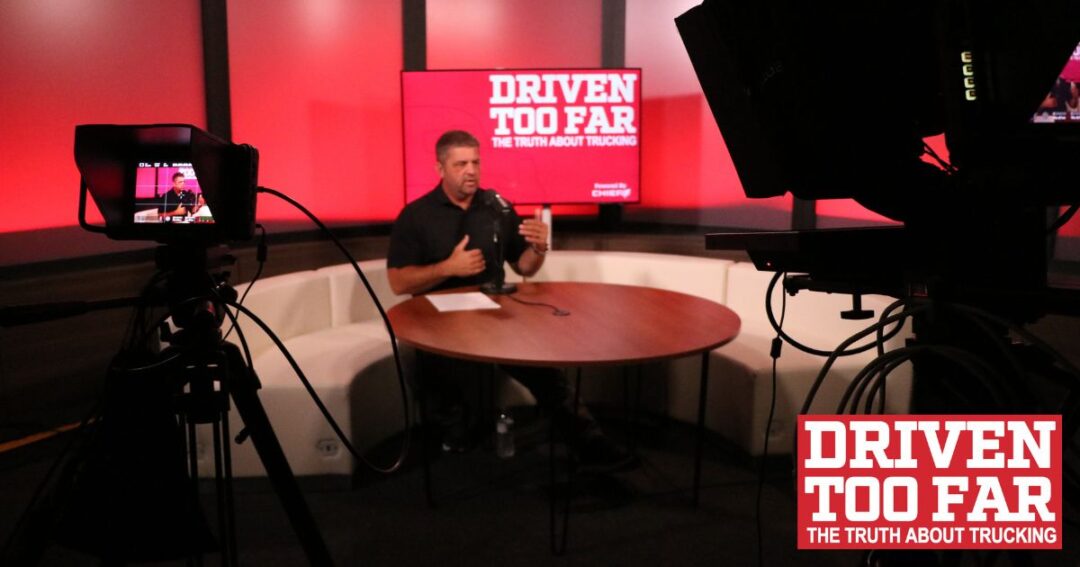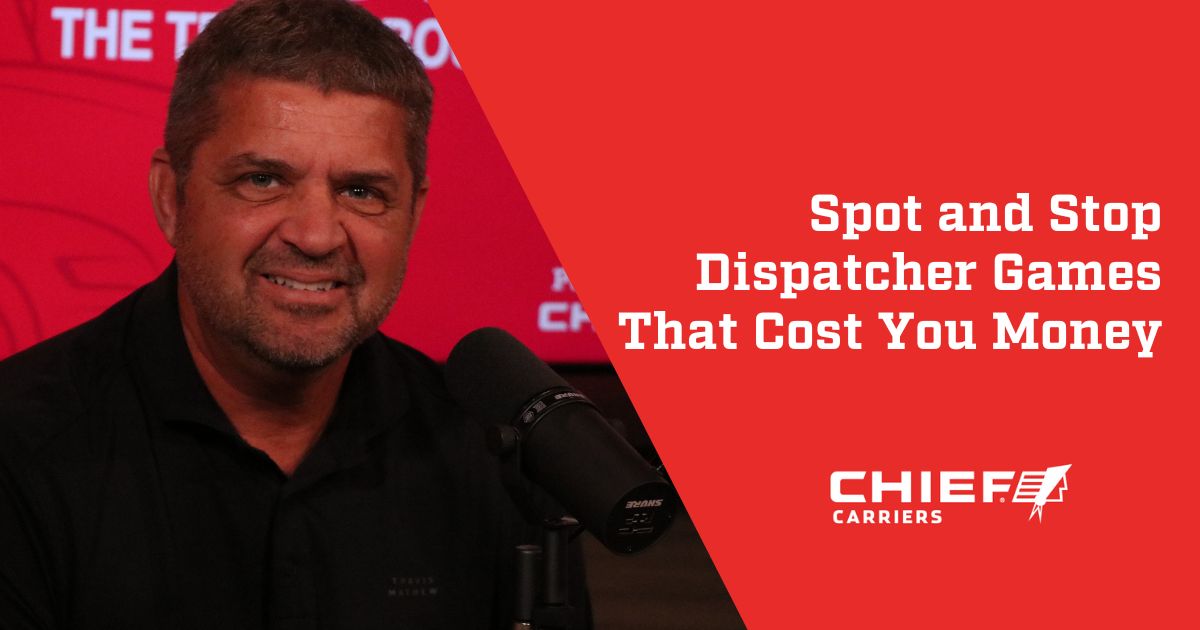Protecting Your Career: Understanding Dispatcher Games in Trucking
Every professional driver knows that the relationship with their dispatcher can make or break their success on the road.
While most dispatchers maintain high professional standards, some play games that directly impact your income, home time, and overall job satisfaction. Whether subtle or obvious, these tactics can cost you thousands in lost revenue and countless hours of frustration.
With decades of industry experience, we’ve seen how dispatcher games evolve with technology and changing market conditions. From mysterious load assignments to conveniently “forgotten” detention pay, these practices persist because drivers often don’t know how to identify and address them effectively.
In this Driven Too Far post we’ll pull back the curtain on common dispatcher tactics, explore real solutions, and help you build stronger professional relationships.
Whether you’re a seasoned owner-operator or a company driver, understanding these dynamics is crucial for protecting your income and advancing your career.
Why Dispatcher Games in Trucking Cost You Money
Every day across America, drivers lose money to subtle dispatcher manipulation.
It starts with a seemingly innocent request – just one quick detour, an extra stop that “won’t take long,” or a load that’s “perfect” for your route but adds hours to your drive time. These small compromises add up quickly, eating into your earnings and available hours of service.
Think about your last month on the road. How many times did a “quick” favor turn into hours of unpaid time?
Those extra 50 miles here, an added stop there, they might seem minor in the moment, but they add up to serious money. A single hour of unexpected detention time doesn’t just cost you the hour, it can throw off your entire week’s schedule and earning potential.
Even more costly are the hidden opportunities you miss while dealing with these situations. While you’re handling that “favor” load, other drivers are grabbing the premium routes and better-paying freight.
It’s not just about what these games cost you directly, it’s about what they prevent you from earning.

The Hidden Costs of Load Manipulation
The real cost of dispatcher games goes far beyond your fuel gauge.
When a dispatcher claims “this is the only load available,” they’re often masking better options they’ve reserved for favored drivers. This preferential treatment creates a cycle where some drivers consistently get premium routes while others struggle with less profitable hauls.
Watch for patterns like Friday afternoon load assignments that trap you over weekends, or routes that consistently dead-head you through areas known for poor backhaul opportunities.
These aren’t coincidences – they’re calculated moves that can cost you hundreds per week in lost revenue.
Breaking Down Communication Red Flags
Notice how some dispatchers only reach out when they need something? That’s not just poor customer service – it’s a strategy. By maintaining irregular communication, they create urgency that pressures you into quick decisions. Those rushed moments often lead to accepting loads that hurt your bottom line.
Classic red flags include delayed responses about detention pay, conveniently “missing” messages about time-sensitive issues, and sudden communication blackouts when you’re trying to plan your home time.
Professional dispatchers maintain consistent, clear communication patterns that respect your time and planning needs.
Time Management Mind Games
Let’s talk about those “quick” drops that turn into three-hour waits. Or the magical appointment times that somehow always fall 30 minutes before your hours expire.
These aren’t scheduling accidents, they’re calculated moves that put you in impossible situations. Either you burn valuable driving hours waiting, or you’re forced to run tight against your clock.
The worst part? These time traps often come disguised as “opportunities.” A lucrative load sounds great until you realize you’re burning an entire day at a notorious slow dock, with no detention pay in sight.
Smart drivers know that real money isn’t just in the rate per mile – it’s in how efficiently you can turn those miles.

Routes and Revenue Reality Check
Ever notice how some routes seem designed to fail? You’re sent into New York City during rush hour, or scheduled for a pickup in Chicago during a snowstorm.
When dispatchers ignore real-world conditions, they’re gambling with your time and money. That “premium rate” load quickly loses its value when you’re crawling through traffic or searching for parking.
The math is simple: every unplanned delay cuts into your earnings. Whether it’s weather issues, traffic patterns, or port congestion, experienced dispatchers should factor these realities into your schedule. If they’re not, you’re the one paying the price.
Building Professional Boundaries
Setting boundaries isn’t being difficult, it’s being professional.
When you clearly communicate your operating parameters, both sides win. This means being upfront about your required rest breaks, realistic drive times, and non-negotiable home time needs. Professional drivers who establish these guidelines early face fewer “emergency” requests and last-minute schedule changes.
Remember, you’re not saying no, you’re saying yes to running your truck like a business.
When a dispatcher knows you won’t compromise on safety or regulations, they’re less likely to suggest loads that push these limits. Your reputation for professionalism becomes your shield against common manipulation tactics.
Documentation That Protects You
Your phone is your friend when it comes to protecting yourself from dispatcher games. Every load offer, every promise about detention pay, every commitment about route changes, get it in writing. Screenshots and saved messages aren’t about playing “gotcha”, they’re about maintaining clear records of what was agreed upon.
Keep detailed notes about pattern behavior too. When did the load actually become available? How often are you asked to alter your schedule? What’s the real waiting time at regular customers?
This information becomes valuable when you need to address ongoing issues or justify turning down problematic loads.

Technology as Your Ally
Modern trucking apps and electronic logging devices (ELDs) aren’t just for tracking miles, they’re your proof against time manipulation.
When your dispatcher claims a facility “never” has wait times, your documented history shows otherwise. Use your tech tools to track detention times, route inefficiencies, and real fuel costs. Hard data beats “trust me” every time.
But don’t stop at basic tracking. Today’s routing software can help you spot when you’re being sent on inefficient routes or when better alternatives exist.
Knowledge is leverage, and staying tech-savvy helps you push back against costly routing decisions with facts, not just feelings.
Creating Mutual Respect
The best dispatcher relationships aren’t built on power plays, they’re built on mutual success.
When both sides understand that money lost to inefficiency hurts everyone, the games stop and real solutions begin. This means being direct about problems, offering constructive alternatives, and recognizing when your dispatcher makes positive changes.
Good dispatchers want drivers who communicate professionally and think like business owners. Show them you understand the bigger picture, customer needs, market conditions, and company goals and you’ll often find they’re more willing to work with your needs too.
Industry Standards and Rights
Know what’s legal, what’s standard, and what’s just plain wrong. When a dispatcher claims “everyone runs over their hours,” or “that’s just how the industry works,” they’re counting on your inexperience.
Understand your rights regarding forced dispatch, coercion violations, and safety regulations. This knowledge base isn’t just protection, it’s professional currency.
The FMCSA has clear guidelines about driver coercion and pressure to violate regulations. Smart drivers keep these resources bookmarked and aren’t afraid to reference them when needed.
Remember: standing up for your rights isn’t being difficult, it’s being professional.

Success Through Partnership
The most successful drivers aren’t the ones who win every argument with dispatch – they’re the ones who rarely need to argue at all. Build a reputation for reliability, clear communication, and professional problem-solving.
When dispatchers know you’re reasonable but firm about your boundaries, they’re more likely to offer you their better loads and respect your time.
Focus on solutions, not complaints.
If a regular customer consistently causes delays, suggest alternate appointment times. When a route regularly hits traffic, propose schedule adjustments. Being part of the solution makes you valuable beyond just driving miles.
Solutions for Common Conflicts
Don’t wait for problems to escalate. Address issues early, professionally, and with clear documentation. When a dispatcher starts playing games with your miles or time, have a direct conversation about the impact on your earnings and safety.
Often, simply showing you’re aware and keeping records is enough to prevent future issues.
Keep emotions out of it. Instead of accusations, use facts: “The last three loads to this customer averaged four hours of detention time, which costs me X dollars per week.”
Professional drivers who approach conflicts as business discussions, not personal battles, usually find faster resolutions.

Your Next Step to Professional Success
The power to change dispatcher dynamics starts with you. By understanding common tactics, maintaining professional standards, and using the tools and strategies we’ve discussed, you can build stronger, more profitable relationships in this industry.
Remember: your success isn’t just about miles driven, it’s about making every mile work for you.
Key Takeaways for Protection
- Document every load offer and communication
- Track facility delays and detention times
- Save evidence of route inefficiencies
- Keep records of promised rates and actual payments
Building Your Professional Strategy
Whether you’re new to trucking or a veteran driver, implementing these practices takes time. Start with the basics: clear communication, consistent documentation, and professional boundaries.
As you build confidence, add more sophisticated tracking and negotiation strategies to your toolkit.
What to Look for in Your Next Company
- Transparent load assignment policies
- Clear detention and delay compensation
- Respectful dispatch communication
- Written policies protecting driver rights
- Professional development opportunities
Moving Forward
Take stock of your current situation. Are you losing money to dispatcher games? Are you getting the respect and compensation you deserve?
Use this knowledge to evaluate your position and make informed decisions about your career path.
Join a Company That Values Drivers
At Chief Carriers, we believe in straightforward relationships built on mutual respect.
Our dispatchers are trained to work with drivers as valued business partners, not just truck numbers.
We’re always looking for professional drivers who understand the value of clear communication and profitable partnerships.
Ready to experience the difference? Discover our truck driving jobs today. Apply now or complete our contact form and a recruiter will contact you about trucking jobs.
We look forward to welcoming you into the Chief family.
Driven Too Far Podcast
Driven Too Far is a podcast that delivers the unvarnished truth about the trucking industry, hosted by Andrew Winkler, who understands the challenges drivers face.
From answering common questions for aspiring truck drivers to providing insider knowledge on pay, benefits, safety, and career advancement, this podcast offers valuable insights to help you balance your trucking career and family life.
Driven Too Far is produced by Two Brothers Creative.

